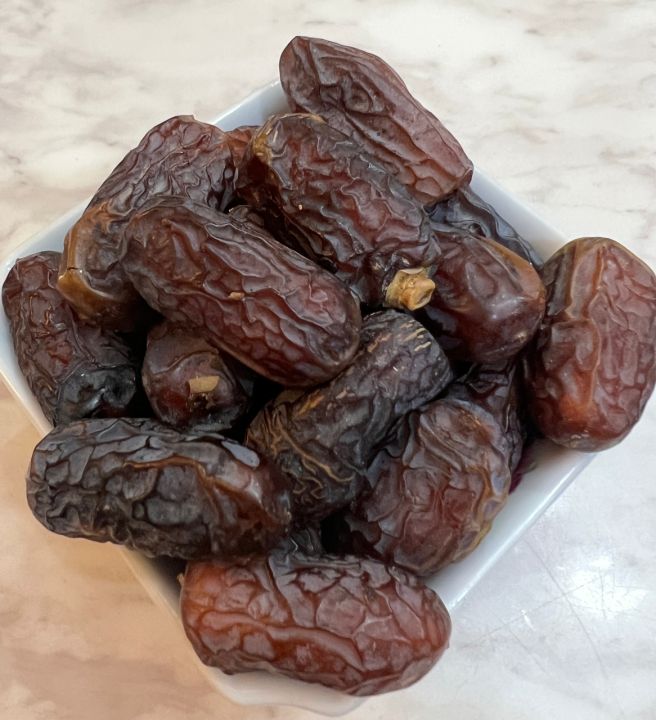
The Influence of Climate on the Cultivation of Dates Fruit in Malaysia
Introduction
Dates fruit, known as “kurma” in Malaysia, has a rich history and is cultivated in various regions of the country. in this post we will explore Jual Kurma . Dates are a popular commodity in the country, enjoyed both as a healthy snack and as an ingredient in various culinary preparations. The cultivation of dates in Malaysia is influenced by environmental factors such as climate, geography, and soil conditions.
The cultivation of dates is greatly influenced by the climate and geography of Malaysia. In this blog post, we will explore how the climate and geography of Malaysia impact the cultivation of dates fruit. From the ideal growing conditions to different regions suitable for date production, we will delve into the unique characteristics of Malaysian dates that are influenced by the country’s climate and geography.
1. Defining Jual Kurma
Jual Kurma refers to the practice of buying and selling dates fruit in Malaysia. It is a term commonly used in the local market to describe the trade and commerce of dates, which are highly valued for their taste, nutritional benefits, and cultural significance. It involves various stakeholders, including date farmers, wholesalers, retailers, and consumers, who engage in the selling and purchasing of dates to meet the demand for this popular fruit. The term represents the vibrant and dynamic market for dates in Malaysia, where individuals and businesses actively participate in the trade of kurma, contributing to the availability and accessibility of this nutritious and delicious fruit to the Malaysian population.
2. Climate and Date Cultivation in Malaysia
2.1 Tropical Climate
Malaysia has a tropical climate characterized by high temperatures and humidity throughout the year. Dates thrive in warm and arid environments, making Malaysia’s tropical climate suitable for their cultivation. The warm temperatures promote the growth of date palm trees, and the consistent humidity provides the necessary moisture for the trees to flourish.
2.2 Rainfall Patterns
Rainfall patterns in Malaysia also influence date cultivation. Dates require a moderate amount of water, and excessive rainfall can be detrimental to their growth. Therefore, regions with a well-distributed rainfall pattern or with access to irrigation systems are preferred for date cultivation in Malaysia.
3. Geographic Influences on Date Cultivation
3.1 Soil Requirements
The geography of Malaysia plays a crucial role in date cultivation, particularly in terms of soil conditions. Dates prefer well-drained sandy soil with good fertility. The country’s varied geography provides different soil types, and date farmers carefully select areas with suitable soil conditions to ensure optimal growth and productivity of date palm trees.
3.2 Regional Suitability
Different regions in Malaysia exhibit varying degrees of suitability for date cultivation. The states of Perlis, Kedah, and Kelantan, located in the northern part of Peninsular Malaysia, are known for their successful date plantations. These regions have the ideal combination of climate, soil conditions, and access to water resources, making them conducive to date cultivation.
Conclusion
The cultivation of dates fruit in Malaysia is greatly influenced by the country’s climate and geography. Malaysia’s tropical climate, characterized by warm temperatures and consistent humidity, provides favorable conditions for date palm trees to thrive. The well-distributed rainfall patterns and access to irrigation systems ensure the optimal amount of moisture for date cultivation. The geography of Malaysia, with its diverse soil types and regional suitability, allows for the cultivation of dates in specific areas such as Perlis, Kedah, and Kelantan. The unique characteristics of Malaysian dates are a result of the country’s climate and geography, making them a distinct and sought-after commodity.
Key Highlights:
– Jual Kurma refers to the buying and selling of dates fruit in Malaysia.
– Malaysia’s tropical climate provides favorable conditions for date cultivation.
– Rainfall patterns and access to irrigation systems influence date cultivation in Malaysia.
– The geography of Malaysia, with its diverse soil types, impacts date cultivation.
– Regions such as Perlis, Kedah, and Kelantan are suitable for date production.
– Malaysian dates have unique characteristics influenced by climate and geography.